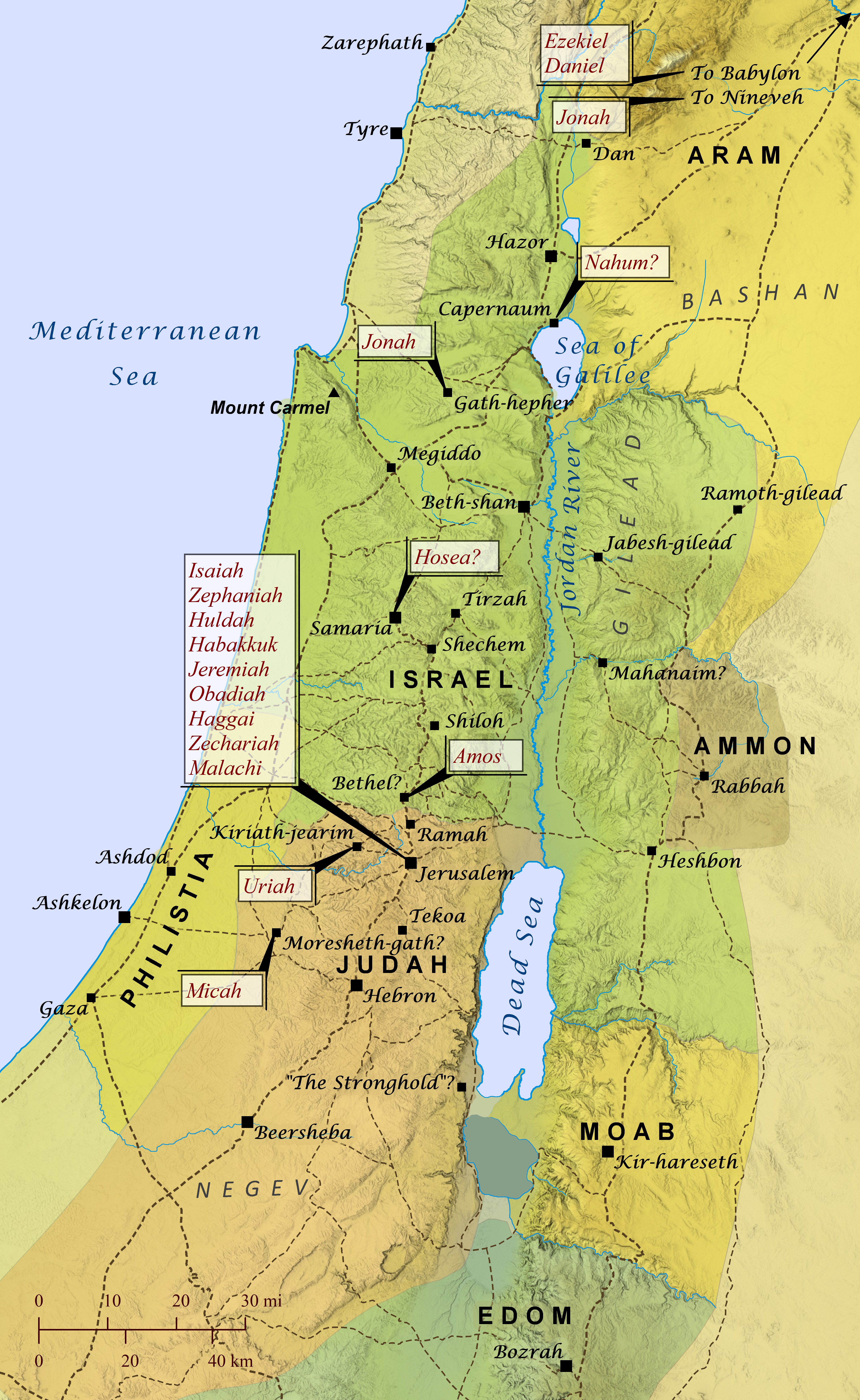Readers’ Version
Literal Version
22 Yoshiyyah was eight when he became king, and he reigned from Yerushalem for thirty-one years. (His mother was Adayah’s daughter Yedidah from Batskat.)[ref] 2 He did what Yahweh had said was correct behaviour, following all the customs of his ancestor King David, and obeying Yahweh’s instructions.
3 In the eighth month of the eighteenth year of King Yoshiyyah’s reign, he sent the scribe Shafan (the son of Atsalyah the son of Meshullam) to the temple, saying 4 “Go to the high priest Hilkiyyah and get him to count the silver that was brought into Yahweh’s temple, which the door-keepers collected from the people. 5 Then have it given to the supervisors of the temple repairs, and then they can pay the workers who are repairing the damage—6 the craftsmen, builders, and masons, as well as buying wood and quarried stones for the repairs.” 7 They won’t need to submit detailed accounts for it because they’re trustworthy people.[ref]
8 During the repairs, the hight priest Hilkiyyah told the scribe Shafan, “I found a scroll in the temple with Yahweh’s instructions written on it.” So Hilkiyyah gave the scroll to Shafan to read. 9 Then Shafan the scribe went to the king with this report, “Your servants handed over the money that had been collected in the temple, and they gave it to the supervisors of the workers doing the repairs.” 10 Then he added, “And the priest Hilkiyyah gave me a scroll.” Then he read it out loud to King Yoshiyyah.
11 When the king heard the contents of the scroll, he tore his clothes 12 and commanded the priest Hilkiyyah, Shafan’s son Ahikam, Mikayah’s son Akbor, the scribe Shafan, and the king’s servant Asayah, 13 “Go and inquire from Yahweh on my behalf and on behalf of the people and all Yehudah, concerning the words of this scroll that was found. Because it sounds like Yahweh must be very angry at us because our predecessors didn’t listen to what’s written on this scroll and didn’t do what was expected of us.”
14 So Hilkiyyah the priest and Ahikam, Akbor, Shafan, and Asayah went to the prophetess Huldah (the wife of Shallum, the son of Tikvah, the son of Harhas, the one in charge of looking after the priests’ uniforms who lived in the newer part of Yerushalem), and they spoke to her. 15 She told them that Yisrael’s god Yahweh had said, “Tell the man who sent you all to me 16 that Yahweh says this: I’m going to bring disaster to this place and its inhabitants, just like it’s written in the scroll that the king read 17 because they abandoned me. They offered sacrifices to other gods in order to make me angry at everything they do, so now my anger will be directed against this place and it’s not stoppable. 18 But to the king of Yehudah who sent you all to seek Yahweh, tell him that Yisrael’s god Yahweh says: The words that you heard from the scroll, 19 because you’re open to learn and because you humbled yourself in front of Yahweh when you heard my promise that this place and its inhabitants would become a horror and a curse, and because you’ve torn your clothes and wept in front of me, then Yahweh said that he’s taken notice of you. 20 Because of that, he’ll allow you to die and be buried peacefully, and you yourself won’t witness the destruction that will come to this place.”
So they relayed those messages back to King Yoshiyyah.
2 And_he/it_made the_right in/on_both_eyes_of YHWH and_he/it_went in_all the_way_of Dāvid his/its_father and_not he_turned_aside right_hand and_left.
3 and_he/it_was in/on/at/with_eight teen year to/for_the_king Yʼoshiyyāh he_sent the_king DOM Shāfān the_son_of ʼAʦalyāhū the_son_of Məshullām the_secretary the_house_of YHWH to_say.
4 Go_up to Ḩilqiyyāh the_priest/officer the_high and_count DOM the_money the_brought_into the_house_of YHWH which they_have_gathered the_keepers_of the_threshold from the_people.
5 And_given_it[fn] on the_hand_of the_doers_of the_work the_have_the_oversight in/on/at/with[fn] of_YHWH and_they_give DOM_him/it to_doers_of the_work who in_house_of YHWH to_repair the_damage_of the_house.
6 To_the_carpenters and_to_the_builders and_to_the_masons and_to_buy wood(s) and_stone_of hewing to_repair DOM the_house.
7 Only not it_will_be_accounted_for with_them the_money the_delivered on hand_of_them if/because in/on/at/with_integrity they are_working.
8 And_ Ḩilqiyyāh _he/it_said the_priest/officer the_high to Shāfān the_secretary the_scroll_of the_law I_have_found in_house_of YHWH and_ Ḩilqiyyāh _he/it_gave DOM the_book to Shāfān and_read_it.
9 And_ Shāfān _came the_secretary to the_king and_returned DOM the_king message and_he/it_said they_have_poured_out your_servants DOM the_money the_found in/on/at/with_house and_delivered_it on the_hand_of the_doers_of the_work the_have_the_oversight the_house_of YHWH.
10 And_ Shāfān _informed the_secretary to/for_the_king to_ a_scroll _say he_gave to_me Ḩilqiyyāh the_priest/officer and_read_it Shāfān to_(the)_face_of/in_front_of/before the_king.
11 And_he/it_was when_heard the_king DOM the_words/messages_of the_scroll_of the_law and_tore DOM clothes_of_his.
12 And_he/it_commanded the_king DOM Ḩilqiyyāh the_priest/officer and_DOM ʼAḩīqām the_son_of Shāfān and_DOM ˊAkbōr the_son_of Mīkāyāh and_DOM Shāfān the_secretary and_DOM ˊAsāyāh the_servant_of the_king to_say.
13 Go consult DOM YHWH for_me and_for the_people and_for all_of Yəhūdāh/(Judah) on the_words/messages_of the_book the_found the_this if/because is_great the_rage_of YHWH which it it_has_been_kindled in/on/at/with_us on that not they_listened ancestors_of_our to the_words/messages_of the_book the_this for_doing according_to_all_of the_written concerning_us.
14 And_ Ḩilqiyyāh _he/it_went the_priest/officer and_ʼAḩīqām and_ˊAkbōr and_Shāfān and_ˊAsāyāh to Ḩuldāh the_prophetess the_wife_of Shallūm the_son_of Tiqvāh the_son_of Ḩarḩaş the_one_who_kept the_wardrobe and_she was_dwelling in/on/at/with_Yərūshālam/(Jerusalem) in/on/at/with_second_district and_they_spoke to_her.
15 And_she/it_said to_them thus YHWH he_says the_god_of Yisrāʼēl/(Israel) say to_the_man who he_sent DOM_you(pl) to_me.
16 Thus YHWH he_says see_I am_about_to_bring calamity to the_place the_this and_on inhabitants_of_its DOM all_of the_words/messages_of the_book which he_has_read the_king_of Yəhūdāh.
17 Because that abandoned_me and_burned_incense to_gods other so_as provoked_to_anger_me in/on/at/with_all_of the_work_of hands_of_their and_kindled severe_anger_of_my in/on/at/with_place the_this and_not it_will_be_quenched.
18 And_near/to the_king_of Yəhūdāh/(Judah) the_sent DOM_you(pl) to_inquire_of DOM YHWH thus you(pl)_will_say to_him/it thus YHWH he_says the_god_of Yisrāʼēl/(Israel) the_words/messages which you_have_heard.
19 Because it_was_soft heart_of_your and_humbled from_face/in_front_of YHWH in/on/at/with_heard_you that_which I_had_spoken on the_place the_this and_against inhabitants_of_its to_be as_desolation and_as_curse and_torn DOM clothes_of_your and_she/it_wept before_face_of_me and_also I I_have_heard the_utterance_of YHWH.
20 For_so/thus/hence see_I gather_of_you to fathers_of_your and_gathered to grave_of_your in/on/at/with_peace and_not eyes_of_your they_will_look in/on/at/with_all_of the_disaster which I will_bring on the_place the_this and_brought_back DOM the_king message.

